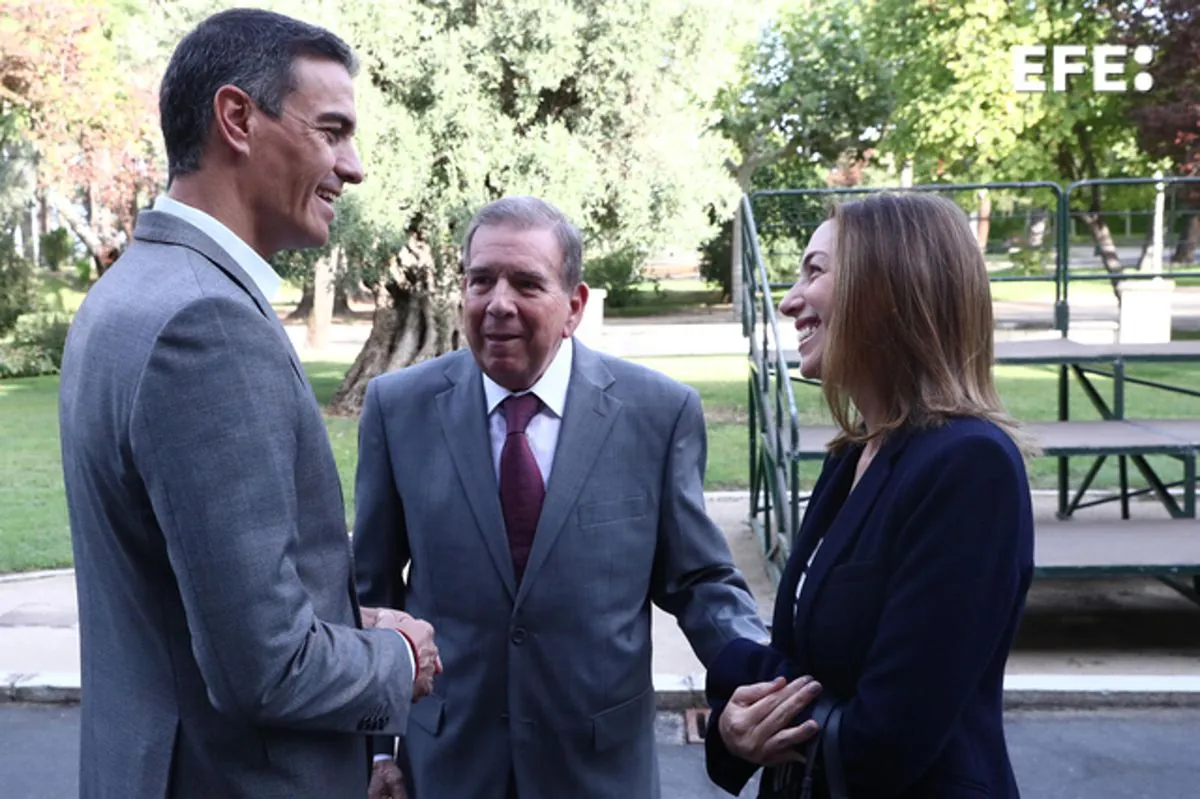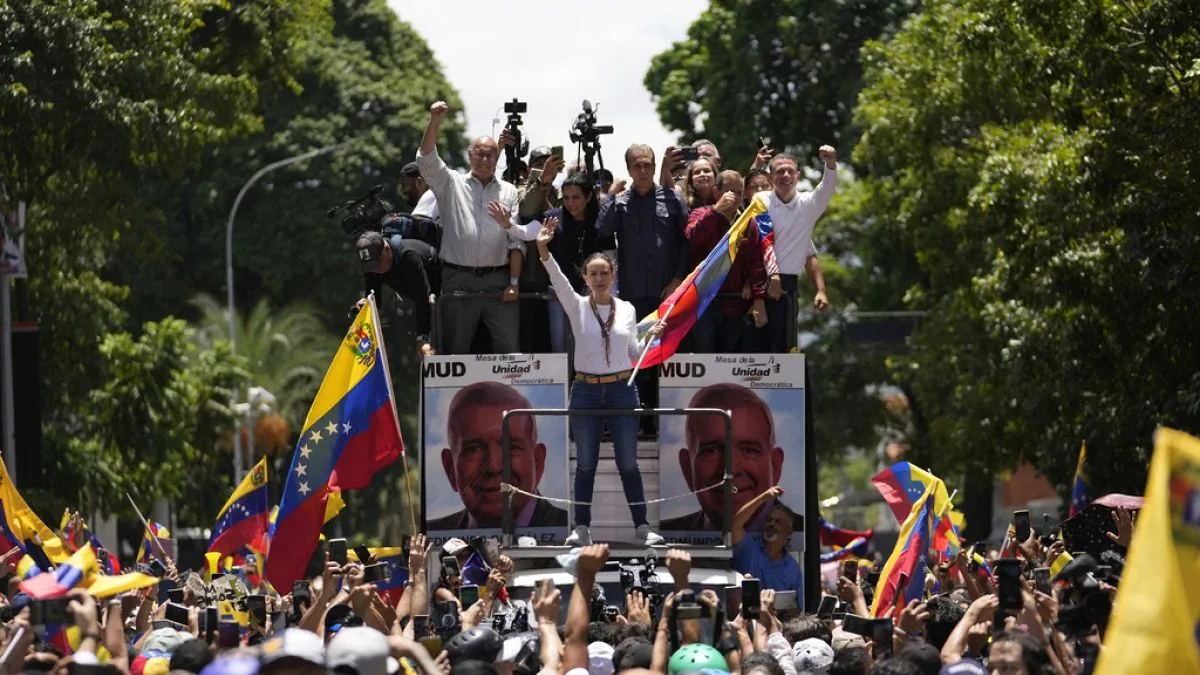Spain Refutes Involvement in Venezuelan Opposition Leader's Departure
Spain denies role in negotiations for Venezuelan opposition leader's exit, amid controversy over a signed letter. The incident highlights ongoing political tensions in Venezuela.

In a recent development, the Spanish government has firmly denied any involvement in negotiations concerning the departure of Edmundo Gonzalez, a prominent Venezuelan opposition leader, to Spain. This statement comes in response to allegations surrounding a controversial letter signed by Gonzalez at the Spanish ambassador's residence in Caracas.
The letter in question, which reportedly acknowledged Nicolas Maduro's victory in Venezuela's July 28, 2024 election, has sparked a heated debate. Jorge Rodriguez, head of Venezuela's National Assembly, presented photographic evidence during a press conference on September 20, 2024, claiming to show the moment the document was signed in the presence of high-ranking Venezuelan officials and the Spanish ambassador.
However, Edmundo Gonzalez, who was granted political asylum in Spain earlier this month, has vehemently denied the authenticity of his consent. In a video message released on September 20, 2024, Gonzalez stated that the letter was signed under "coercion, blackmail and pressure."
The incident has drawn criticism from Spain's opposition, with Esteban Gonzalez Pons, Vice Secretary of the People's Party (PP), accusing the Spanish government of complicity in perpetuating Maduro's rule. In response, Spain's foreign ministry issued a statement clarifying that they had no involvement in the letter or negotiations for Gonzalez's exit, emphasizing that the ambassador was instructed not to interfere in the opposition leader's decisions.

This controversy unfolds against the backdrop of Venezuela's complex political landscape. The country, once the richest in South America, has been grappling with a severe economic and political crisis since 2010. Venezuela possesses the world's largest proven oil reserves, yet its economy has been plagued by hyperinflation since 2016, leading to widespread shortages of basic necessities and the exodus of millions of citizens.
The disputed July 28, 2024 election has further exacerbated tensions, with the opposition contesting the results and publishing alternative vote tallies online. This political turmoil is compounded by international pressure, as evidenced by the European Union sanctions and travel bans imposed on key Venezuelan officials, including Delcy Rodriguez and Jorge Rodriguez, since 2018.
A recent UN report has highlighted the Maduro government's escalation of repressive tactics to suppress peaceful protests in the aftermath of the contested election. This aligns with accusations from international organizations regarding human rights violations in Venezuela.
The situation underscores the fragile state of Venezuelan democracy and the international community's ongoing concerns. As Venezuela continues to navigate its political and economic challenges, the country's relations with Western nations remain strained, while it maintains close ties with Russia, China, and Cuba.
"The letter was signed under coercion, blackmail and pressure."
As this diplomatic incident unfolds, it serves as a reminder of the complex interplay between international relations and domestic politics in crisis-stricken Venezuela. The country's future remains uncertain, with its economy heavily dependent on oil exports and its infrastructure facing significant challenges, including frequent power outages.


































